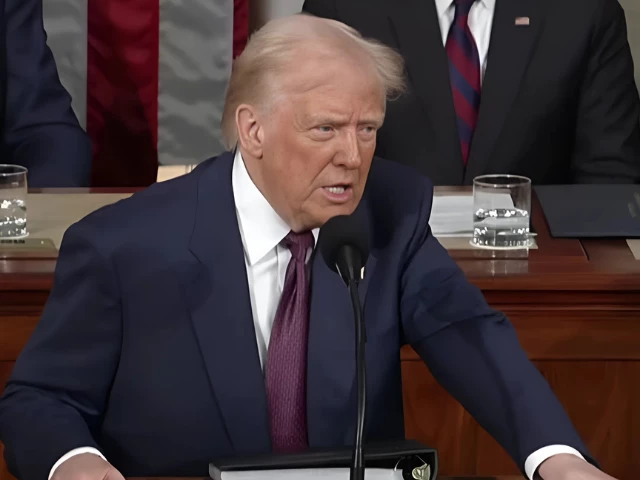Trump vows lower tariffs on trade partners, easing fears of trade war
Trump aims to unveil tariffs targeting all countries, including key US trading partners, despite concerns.

US President Donald Trump has announced that the long-awaited reciprocal tariffs, set to be revealed on April 2, will be lower than the tariffs imposed by other countries.
His remarks have left global markets uncertain, as they brace for the impact of his decision.
Speaking at the White House on Monday, Trump sought to reassure reporters, stating, “We are going to be very nice by comparison to what they were. The numbers will be lower than what they have been charging us, and in some cases, maybe substantially lower.”
He added that the tariffs would mark a “rebirth” for the US, bringing “tremendous wealth back to our country.”
The tariffs, which Trump insists are a response to the US being “ripped off by every country in the world,” are expected to target a wide range of trading partners.
The president clarified that the measures would apply to all countries, including close allies like Canada, China, and the European Union. This announcement has raised concerns among lawmakers and global trade partners alike.
The lead-up to Trump’s tariff announcement has triggered volatility in global stock markets. Key European and Asian stock indices have closed lower, reflecting concerns over the potential for retaliatory measures from US trading partners. Despite this, the Dow and S&P 500 managed to eke out small gains, suggesting a mixed reaction from investors.
The uncertainty surrounding the tariffs has raised fears of a global trade war, with some Republican senators voicing their opposition to the move.
Senators Susan Collins and Thom Tillis have expressed concerns about the negative impact of tariffs on Canada and are reportedly considering backing a resolution to block them.
Trump’s remarks also come at a time when China, South Korea, and Japan have announced plans to strengthen free trade among themselves, potentially in response to the expected tariffs.
However, Trump dismissed the idea that his actions would push US allies closer to Beijing, suggesting that negotiations over issues like TikTok could also be linked to future tariffs on China.
While details of the tariffs remain vague, Trump has indicated that they will be “far more generous” than existing tariffs imposed by other countries on US goods.
There are reports that the tariffs could be as high as 20% on a broad range of imported goods, affecting nearly all of the US’s major trading partners. Additionally, sector-specific tariffs on items like pharmaceuticals and semiconductors are expected.
The decision has raised concerns about the potential for a recession in the US.
Goldman Sachs analysts recently increased their forecast for the likelihood of a recession from 20% to 35%, citing the risks posed by the tariff strategy.
The announcement has also prompted a sharp increase in inflation expectations, with economists forecasting rising prices and lower economic growth.
Despite this, US trade partners are already preparing for the impact. China and Canada have imposed counter-tariffs on US goods, while the European Union is expected to introduce retaliatory measures in mid-April.
The International Monetary Fund’s Kristalina Georgieva has expressed concern over the economic anxiety caused by the tariffs but has suggested that their global economic impact may not be as severe as initially feared.
As the trade uncertainty continues to build, the world watches closely to see how Trump’s tariffs will reshape global trade relations and the US economy.























COMMENTS
Comments are moderated and generally will be posted if they are on-topic and not abusive.
For more information, please see our Comments FAQ